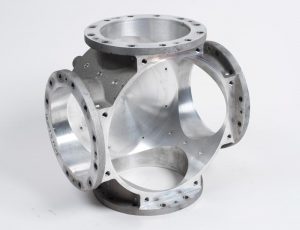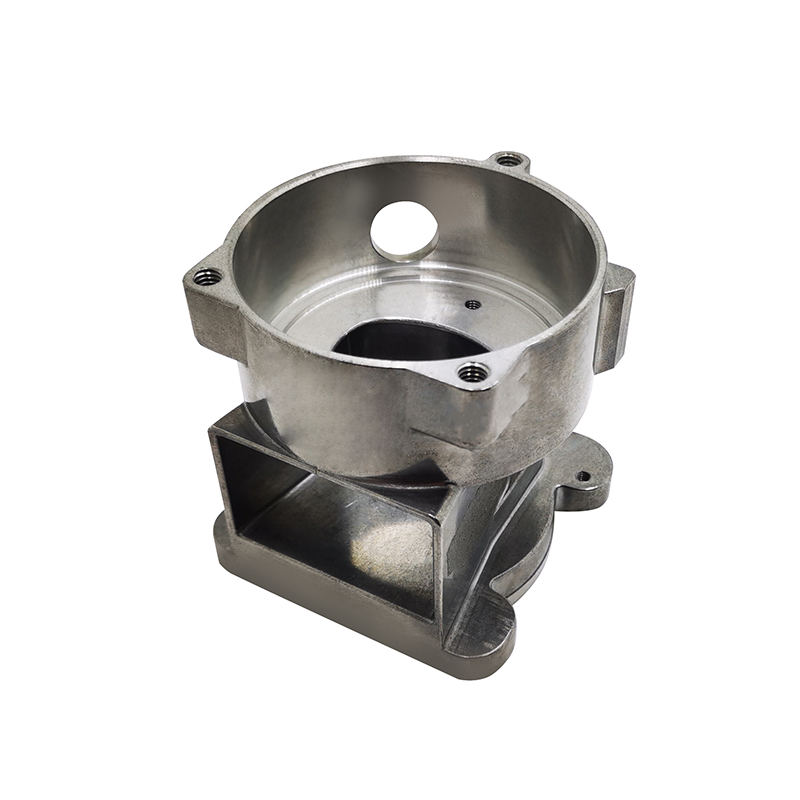Checking Out the Cutting-edge Processes Behind Modern Aluminum Shop Operations
Modern aluminum foundry operations are going through considerable makeover. Automation and AI are reshaping production approaches, improving both effectiveness and accuracy. The combination of 3D printing is enhancing mold production, while sustainability techniques are ending up being extra important. Each of these developments plays a vital function in redefining the sector. The effects of these adjustments prolong past plain manufacturing performance. What chances and obstacles lie in advance for light weight aluminum foundries in this progressing landscape?
The Duty of Automation in Light Weight Aluminum Foundries

Automation contributes to boosted security criteria within the factory setting. By moving harmful tasks to makers, human workers can concentrate on managerial functions and quality control, reducing the risk of crashes. Additionally, data analytics originated from automated processes supply beneficial understandings into functional efficiency, causing better decision-making and continuous renovation. As the demand for light weight aluminum products grows, the fostering of automation modern technologies will likely broaden, further transforming the landscape of light weight aluminum factory operations.
Developments in Spreading Technologies
Recent developments in casting modern technologies are changing aluminum factory procedures. Advancements such as 3D printing assimilation, progressed alloy formulations, and automated procedure optimization are improving effectiveness and item top quality. These growths are crucial in fulfilling the advancing demands of the market.
3D Printing Assimilation
Integrating 3D printing modern technology right into aluminum factory procedures has actually transformed traditional casting approaches, improving both efficiency and accuracy. This innovative strategy enables the rapid manufacturing of intricate molds and cores, considerably decreasing preparations and product waste. By making use of additive manufacturing, factories can develop elaborate geometries that were difficult or previously difficult to attain with conventional techniques. The flexibility of 3D printing also makes it possible for fast design modifications, promoting an extra nimble production procedure. In enhancement, this combination sustains making use of light-weight structures, which is significantly vital in sectors such as auto and aerospace. As light weight aluminum foundries continue to take on 3D printing, they place themselves at the leading edge of technological innovation, driving improvements in product quality and functional capacities.
Advanced Alloy Formulations
The advancement of innovative alloy solutions has actually considerably boosted spreading technologies in aluminum shop procedures. These solutions integrate different aspects, such as copper, silicon, and magnesium, to boost mechanical properties and thermal resistance. By customizing the composition of light weight aluminum alloys, producers can achieve specific efficiency attributes that fulfill the demands of diverse applications, from auto parts to aerospace frameworks. Using innovative alloys likewise adds to decreased weight and enhanced strength, which are vital consider contemporary design. Additionally, technologies in alloy development make it possible for much better fluidness throughout casting, causing boosted surface area coatings and lowered problems. In general, advanced alloy formulations stand for a considerable leap forward, positioning aluminum shops to satisfy the progressing demands of various sectors effectively.
Automated Refine Optimization
Innovations in casting innovations have led the way for automated process improvement in light weight aluminum foundry procedures. By integrating innovative software program and real-time information analytics, shops can now improve production procedures and enhance top quality control. Automated systems keep an eye on variables such as pressure, temperature level, and air conditioning prices, allowing for instant modifications that reduce issues and waste. Additionally, maker understanding formulas assess historical efficiency information to forecast optimal setups, therefore increasing effectiveness and decreasing cycle times. Robotics additionally play a substantial role, handling recurring tasks that improve safety and accuracy. In general, these advancements not only drive functional efficiency but also allow shops to fulfill the expanding need for top quality aluminum parts in various industries.
Smart Production and Market 4.0 Combination
The combination of Smart Manufacturing and Market 4.0 within aluminum shops is changing operational performance. By leveraging IoT innovations, automation, and robotics, shops can maximize production procedures and lower downtime. Furthermore, data analytics gives vital understandings that boost decision-making and drive continuous improvement.
IoT in Foundry Procedures
As manufacturers significantly welcome the Net of Points (IoT), foundry procedures are experiencing a transformative change in the direction of smart production and Market 4.0 assimilation. Precision aluminum casting. IoT technologies enable real-time information collection and evaluation, improving decision-making procedures and operational effectiveness. Sensing units and connected gadgets Related Site check equipment efficiency, product usage, and environmental problems, enabling for aggressive maintenance and source optimization. This connection fosters a more nimble production environment, where adjustments can be made promptly in response to market needs. Additionally, IoT assists in improved traceability and quality assurance, as information from the whole production cycle can be quickly accessed and examined. On the whole, the combination of IoT in foundry procedures substantially boosts productivity and drives innovation in aluminum manufacturing procedures
Automation and Robotics Combination
Automation and robotics assimilation is revolutionizing aluminum factory procedures by improving performance and accuracy. This transformative strategy improves processes such as molding, pouring, and finishing, decreasing human error and boosting output consistency. By utilizing sophisticated robot systems, shops can attain greater manufacturing prices while keeping rigorous high quality standards. Automated systems also enable real-time tracking and adaptive control, enabling for quick changes to manufacturing criteria. On top of that, the combination of robotics decreases labor expenses and alleviates security risks connected with manual handling of molten steel. As factories embrace smart production concepts integral in Industry 4.0, the harmony between automation and robotics solidifies their one-upmanship, leading the way for sustainable growth and advancement in the light weight aluminum spreading field.
Information Analytics for Effectiveness
Utilizing data analytics significantly enhances performance within aluminum shop operations, aligning with wise production and Sector 4.0 principles. By leveraging real-time data collection and evaluation, foundries can keep an eye on manufacturing processes, predict devices failures, and enhance resource allotment. This data-driven method promotes insightful decision-making, making it possible for supervisors to boost and identify traffic jams process. In addition, predictive analytics equips shops to expect market demands, consequently decreasing waste and making sure prompt product shipment. Assimilation of data analytics with IoT tools improves operational visibility, fostering an aggressive maintenance society. Eventually, executing these advanced logical techniques not only increases productivity but also drives technology, placing light weight aluminum shops to meet the progressing needs of the sector while maintaining competitive edges in a swiftly altering landscape.
Lasting Practices in Aluminum Casting
While the aluminum casting industry has actually commonly encountered environmental obstacles, many foundries are now adopting sustainable methods to mitigate their impact (aluminum casting). A substantial emphasis has gotten on reusing aluminum scrap, which not just lowers waste however also conserves power contrasted to primary aluminum manufacturing. Cutting-edge melting innovations, such as induction furnaces, enhance More Bonuses power effectiveness and reduced greenhouse gas discharges
Furthermore, factories are carrying out closed-loop water supply to decrease water usage and decrease thermal contamination. Using green binders in mold-making processes is obtaining traction, additional reducing hazardous exhausts.
In addition, some facilities are spending in sustainable power sources to power procedures, straightening with global sustainability objectives. By integrating these methods, the aluminum spreading sector is progressing toward an extra ecologically accountable future, showing that economic development can coexist with environmental stewardship - Precision aluminum casting. These initiatives show a commitment to sustainability and the relevance of environmental liability in production
Quality Assurance Innovations
As the light weight aluminum casting industry breakthroughs towards sustainability, the significance of quality assurance developments ends up being progressively noticeable. Modern aluminum foundries are adopting sophisticated technologies to improve their quality control procedures. Methods such as real-time surveillance and information analytics allow suppliers to identify flaws and inconsistencies early in the manufacturing cycle. Implementing computerized assessment systems furnished with device learning algorithms warranties that products meet stringent top quality requirements while decreasing human mistake.
The combination of non-destructive screening approaches, such as radiographic and ultrasonic assessments, offers much deeper insights right into the honesty of spreadings without harming the material. These advancements not only enhance item integrity however likewise decrease waste, lining up with sustainability goals. Additionally, the adoption of standard top quality frameworks aids streamline procedures throughout various shops, assuring uniformity in output. Jointly, these innovations are improving top quality control, fostering a society of excellence within the aluminum casting market.
Future Trends in Light Weight Aluminum Shop Operations
What innovations lie ahead for aluminum factory operations? The future of aluminum foundries is poised for makeover via improvements in automation, artificial intelligence, and lasting techniques. The assimilation of robotics and automated systems is anticipated to enhance effectiveness and accuracy in the spreading procedures, lowering human mistake and labor costs. In addition, navigate to this site AI-driven analytics will make it possible for real-time surveillance and predictive upkeep, enhancing functional performance and reducing downtime.
Sustainability stays a prime focus, with foundries progressively adopting green techniques, such as utilizing recycled aluminum and creating low-emission melting technologies. Innovations in 3D printing are also anticipated to change mold-making, permitting complex geometries and decreased material waste. As the industry welcomes digitalization, data-driven decision-making will certainly come to be pivotal, making it possible for factories to react swiftly to market needs. Jointly, these patterns assure to redefine aluminum factory operations, making them extra efficient, sustainable, and versatile to future obstacles.

Regularly Asked Questions
What Precaution Are Executed in Aluminum Shop Operations?
Aluminum shop procedures apply various precaution, including personal protective tools, ventilation systems to handle fumes, regular safety and security training, emergency situation reaction plans, and rigorous tracking of temperature level and devices to avoid mishaps and assurance worker safety.
Exactly How Do Factories Take Care Of Workforce Training for New Technologies?

What Materials Are Frequently Reused in Aluminum Foundries?
Light weight aluminum factories frequently recycle scrap aluminum, including post-consumer products like beverage canisters, vehicle components, and construction materials. This reusing process lowers waste and preserves resources, contributing to a much more lasting aluminum production industry.
Just How Does Aluminum Casting Impact the Setting?
Aluminum casting effects the environment through energy-intensive procedures, greenhouse gas emissions, and prospective local pollution. Nevertheless, advancements in recycling and sustainable techniques can minimize these effects, promoting a more environmentally friendly method to light weight aluminum manufacturing.
What Are the Regular Lead Times for Aluminum Casting Projects?
Normal lead times for light weight aluminum spreading jobs vary substantially, typically ranging from 2 to six weeks. Aspects affecting these timelines include intricacy, order size, and material accessibility, impacting overall production routines in foundry operations.
Automation significantly plays a crucial function in aluminum shops, boosting performance and accuracy in the production process. Developments in casting modern technologies have led the method for computerized process enhancement in light weight aluminum foundry operations. Harnessing information analytics considerably enhances efficiency within aluminum factory procedures, aligning with wise production and Sector 4.0 principles. A considerable focus has been on reusing light weight aluminum scrap, which not only minimizes waste however likewise conserves energy contrasted to key light weight aluminum manufacturing. Light weight aluminum foundries frequently reuse scrap aluminum, including post-consumer products like drink canisters, vehicle parts, and building products.